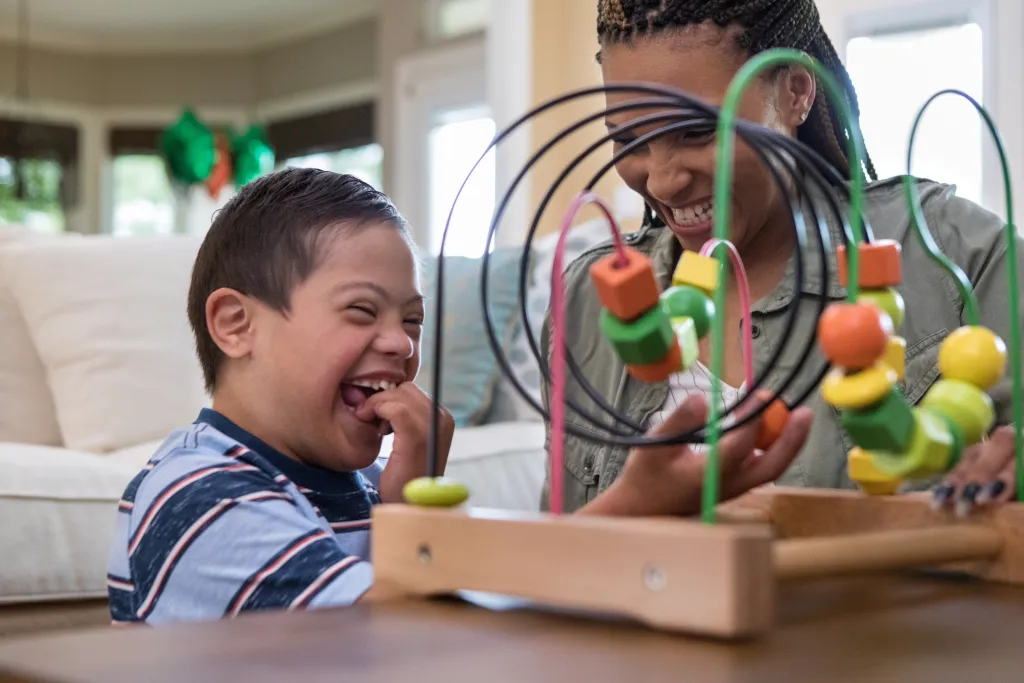School Based ABA Therapy
A structured, evidence-based approach focusing on behavior modification and skill development. ABA therapy is widely used, particularly for individuals with Autism Spectrum Disorder (ASD), but can be beneficial for a range of conditions and behavioral challenges.
This form of therapy intervention focuses on applying behavioral principles to improve educational outcomes and social skills for students, particularly those with autism or other developmental disorders.
Key Components:
- Individualized Programs: This is tailored to each student’s needs, often through individualized education programs (IEPs). Goals might include improving communication, social skills, academic performance, and adaptive behaviors.
- Data-Driven: ABA relies on data collection and analysis to track progress and adjust strategies. Teachers and therapists regularly measure student performance to ensure that interventions are effective.
- Behavioral Interventions: Techniques might include positive reinforcement (rewarding desired behaviors), task analysis (breaking tasks into smaller steps), and modeling (demonstrating appropriate behavior).
- Collaboration: ABA therapists work closely with teachers, special education staff, and parents to ensure consistency across different environments and to support the student’s overall development.
- Skill Development: Our focus is on teaching practical skills that help students function better in school and everyday life. This can include academic skills, social interactions, and self-care tasks.
Implementation:
- In-Class Support: ABA therapists may work directly with students in the classroom, providing one-on-one support and working on specific goals.
- Consultation: ABA therapists may also consult with teachers to develop strategies and adapt classroom environments to better support students.
- Training: Teachers and school staff may receive training in ABA techniques to reinforce interventions throughout the school day.

Benefits:
- Improved Learning: ABA strategies can enhance academic skills and classroom behavior, leading to better learning outcomes.
- Social Skills: Helps students develop social interactions and communication skills, which are crucial for their overall development.
- Behavior Management: Provides tools for managing challenging behaviors and fostering positive behavior changes.





